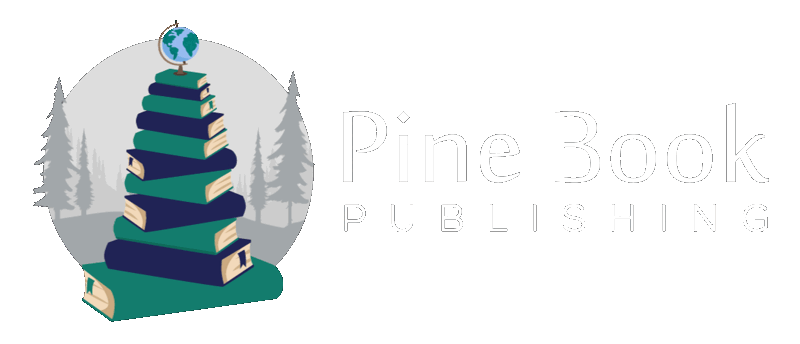Writing involves a deeply personal and creative process. Your literary work represents your months or sometimes years of hard work, dedication, and emotions. But to make it reader-friendly, a polished manuscript requires professional editing services that make it fully flawless, engaging, and readable until the end. Whether your work is first-time or experienced, editing services for writers can transform it from just good to great.
What Are Professional Editing Services?
Professional editing services have different types. Each type serves a different purpose in the process. Here’s the detailed breakdown:
Developmental Editing:
Developmental editing is at the top of all as it focuses on the structure, plot, pacing, and overall manuscript. This is where an editor suggests major revisions to improve the overall manuscript’s narrative or logical story flow.
Copyediting:
Next comes copyediting. It involves checking grammatical mistakes, punctuation, structure of sentences, tone consistency, and overall writing style to ensure your message or story is conveyed to your readers in a clear and professional manner.
Proofreading:
The final stage, or the third but not the least, type of editing before publishing. In proofreading, an editor catches surface-level writing mistakes like wrong spelling (typos), spacing issues, and formatting-related issues.
Depending on the demands of your manuscript and your publishing objectives, professional editors provide customized help. Unlike automated grammar checkers or beta readers, editors provide knowledge of industry standards, an eye for detail, and experience to make your manuscript completely flawless and professional.
Why Authors Can’t Afford to Ignore Professional Editing?
Even the most experienced writers have blind spots in their work. Spending so much time working on the manuscript makes it simple to ignore weaknesses in the work, like overused sentences, spelling mistakes, distractions of the flow, and other errors. When you hire a professional editing service, the editors take a look from a fresh viewpoint when they see holes in the story, probe important issues, and recommend revision freely without being emotionally attached.
Editing helps your writing to be coherent and clear, not only in terms of mistakes. Editors help to keep your readers interested by correcting a problematic sentence, changing the pace, or aligning the tone of the book. Bad editing might cause confusion, irritation, or perhaps the book being ignored. On the other hand, neat and coherent writing shows professionalism and helps readers to turn pages.
How Editing Improves the Experience for the Reader
A well-edited book feels as good as it reads. Although perfect editing is not something readers would notice, they will most definitely find it lacking. Readers can soon lose interest in rough speech, inconsistent character development, and unclear structure.
Professional editing strengthens stories and improves flow, therefore strengthening the narrative. Editors make sure each chapter gains momentum and that scene changes feel natural. In non-fiction, they support the reasonable foundations of every statement and act to clarify issues. The outcome? An immersive, real, and worthwhile reading experience that seems flawless.
The Role of Editors in Enhancing the Author’s Voice
Losing their voice throughout the editing process is one of the main issues authors worry about. Actually, still, experienced editors want to “preserve” and “improve” your particular voice, not just alter it. Their goal is to emphasize your intention rather than replace it.
While helping you communicate more precisely and successfully, a good editor values the tone, style, and message of the manuscript. Together, the writer and editor work to develop a document that is not only technically excellent but also emotionally compelling. When done well, editing turns into a creative team that brings out your work.
Common Myths About Editing
Many false ideas about editing discourage writers from getting help. Let’s break a few of them down:
I can edit my own work
Although self-editing is crucial, it is almost impossible to find every flaw in your own work. Your brain interprets what you *meant* to write rather than what is exactly on the page.
Editing is only for poor writers
In reality, the opposite is correct in truth. Excellent writers know how important it is to edit and polish. Even best-selling writers depend on editors to help with grammar.
Spellcheck is enough
Although there are many tools that can help in spell checking, they don’t always detect every problem, even they often miss contextual errors, slight variations as well as storytelling inconsistencies that can be addressed by a human editor.
Choose the Right Editing Service
If you’re planning to hire a professional, you must find the right match first. There are several book writing and editing agencies around. Choose one that has experience in your genre. For instance, if your literary work falls under the fiction category, hiring an editing expert who has expertise in the non-fiction genre might not be the right decision.
Check authors’ reviews, request previous work portfolios and ask about the service process from the editor you’re considering hiring. Also, ask if they work collaboratively with authors. A good editing service for writers is where the editor will agree to work with you, not just on your draft.
Conclusion
As a writer or author, you always want your literary work to be seen, appreciated, and remembered. To make your write-up flawless, readable, and credible, you need a professional assessment of your write-up by expert editing. Editing isn’t just about fixing errors or flaws but refining your brilliance. So, don’t take editing as a final step but as the polish that helps your story shine. It’s recommended to leave this to experts as there are many agencies offering editing services for writers to make their work outstanding and fit the publishing standards.









